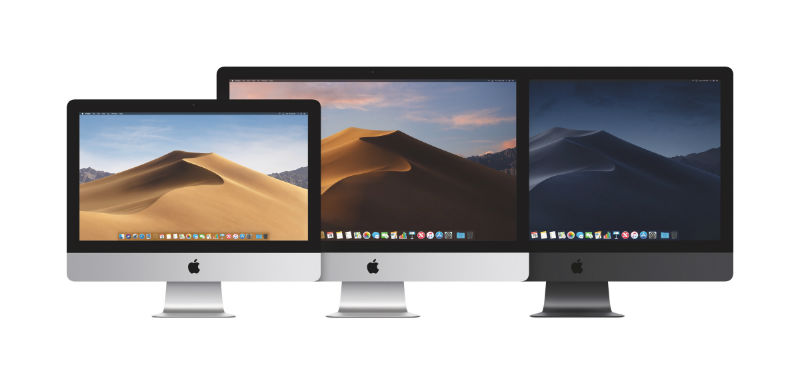Google is widely expected to be handed a third antitrust fine in Europe this week, with reports suggesting the European Commission’s decision in its long-running investigation of AdSense could land later today.
Right on cue the search giant has PRed another Android product tweak — which it bills as “supporting choice and competition in Europe”.
In the coming months Google says it will start prompting users of existing and new Android devices in Europe to ask which browser and search apps they would like to use.
This follows licensing changes for Android in Europe which Google announced last fall, following the Commission’s $5BN antitrust fine for anti-competitive behavior related to how it operates the dominant smartphone OS.
tl;dr competition regulation can shift policy and product.
Albeit, the devil will be in the detail of Google’s self-imposed ‘remedy’ for Android browser and search apps.
Which means how exactly the user is prompted will be key — given tech giants are well-versed in the manipulative arts of dark pattern design, enabling them to create ‘consent’ flows that deliver their desired outcome.
A ‘choice’ designed in such a way — based on wording, button/text size and color, timing of prompt and so on — to promote Google’s preferred browser and search app choice by subtly encouraging Android users to stick with its default apps may not actually end up being much of a ‘choice’.
According to Reuters the prompt will surface to Android users via the Play Store. (Though the version of Google’s blog post we read did not include that detail.)
Using the Play Store for the prompt would require an Android device to have Google’s app store pre-loaded — and licensing tweaks made to the OS in Europe last year were supposedly intended to enable OEMs to choose to unbundle Google apps from Android forks. Ergo making only the Play Store the route for enabling choice would be rather contradictory. (As well as spotlighting Google’s continued grip on Android.)
Add to that Google has the advantage of massive brand dominance here, thanks to its kingpin position in search, browsers and smartphone platforms.
So again the consumer decision is weighted in its favor. Or, to put it another way: ‘This is Google; it can afford to offer a ‘choice’.’
In its blog post getting out ahead of the Commission’s looming AdSense ruling, Google’s SVP of global affairs, Kent Walker, writes that the company has been “listening carefully to the feedback we’re getting” vis-a-vis competition.
Though the search giant is actually appealing both antitrust decisions. (The other being a $2.7BN fine it got slapped with two years ago for promoting its own shopping comparison service and demoting rivals’.)
“After the Commission’s July 2018 decision, we changed the licensing model for the Google apps we build for use on Android phones, creating new, separate licenses for Google Play, the Google Chrome browser, and for Google Search,” Walker continues. “In doing so, we maintained the freedom for phone makers to install any alternative app alongside a Google app.”
Other opinions are available on those changes too.
Such as French pro-privacy Google search rival Qwant, which last year told us how those licensing changes still make it essentially impossible for smartphone makers to profit off of devices that don’t bake in Google apps by default. (More recently Qwant’s founder condensed the situation to “it’s a joke“.)
Qwant and another European startup Jolla, which leads development of an Android alternative smartphone platform called Sailfish — and is also a competition complainant against Google in Europe — want regulators to step in and do more.
The Commission has said it is closely monitoring changes made by Google to determine whether or not the company has complied with its orders to stop anti-competitive behavior.
So the jury is still out on whether any of its tweaks sum to compliance. (Google says so but that’s as you’d expect — and certainly doesn’t mean the Commission will agree.)
In its Android decision last summer the Commission judged that Google’s practices harmed competition and “further innovation” in the wider mobile space, i.e. beyond Internet search — because it prevented other mobile browsers from competing effectively with its pre-installed Chrome browser.
So browser choice is a key component here. And ‘effective competition’ is the bar Google’s homebrew ‘remedies’ will have to meet.
Still, the company will be hoping its latest Android tweaks steer off further Commission antitrust action. Or at least generate more fuzz and fuel for its long-game legal appeal.
Current EU competition commissioner, Margrethe Vestager, has flagged for years that the division is also fielding complaints about other Google products, including travel search, image search and maps. Which suggests Google could face fresh antitrust investigations in future, even as the last of the first batch is about to wrap up.
The FT reports that Android users in the European economic area last week started seeing links to rival websites appearing above Google’s answer box for searches for products, jobs or businesses — with the rival links appearing above paid results links to Google’s own services.
The newspaper points out that tweak is similar to a change promoted by Google in 2013, when it was trying to resolve EU antitrust concerns under the prior commissioner, Joaquín Almunia.
However rivals at the time complained the tweak was insufficient. The Commission subsequently agreed — and under Vestager’s tenure went on to hit Google with antitrust fines.
Walker doesn’t mention these any of additional antitrust complaints swirling around Google’s business in Europe, choosing to focus on highlighting changes it’s made in response to the two extant Commission antitrust rulings.
“After the Commission’s July 2018 decision, we changed the licensing model for the Google apps we build for use on Android phones, creating new, separate licenses for Google Play, the Google Chrome browser, and for Google Search. In doing so, we maintained the freedom for phone makers to install any alternative app alongside a Google app,” he writes.
Nor does he make mention of a recent change Google quietly made to the lists of default search engine choices in its Chrome browser — which expanded the “choice” he claims the company offers by surfacing more rivals. (The biggest beneficiary of that tweak is privacy search rival DuckDuckGo, which suddenly got added to the Chrome search engine lists in around 60 markets. Qwant also got added as a default choice in France.)
Talking about Android specifically Walker instead takes a subtle indirect swipe at iOS maker Apple — which now finds itself the target of competition complaints in Europe, via music streaming rival Spotify, and is potentially facing a Commission probe of its own (albeit, iOS’ marketshare in Europe is tiny vs Android). So top deflecting Google.
“On Android phones, you’ve always been able to install any search engine or browser you want, irrespective of what came pre-installed on the phone when you bought it. In fact, a typical Android phone user will usually install around 50 additional apps on their phone,” Walker writes, drawing attention to the fact that Apple does not offer iOS users as much of a literal choice as Google does.
“Now we’ll also do more to ensure that Android phone owners know about the wide choice of browsers and search engines available to download to their phones,” he adds, saying: “This will involve asking users of existing and new Android devices in Europe which browser and search apps they would like to use.”
We’ve reached out to Commission for comment, and to Google with questions about the design of its incoming browser and search app prompts for Android users in Europe and will update this report with any response.
from Android – TechCrunch https://ift.tt/2Fpumbd
via IFTTT


